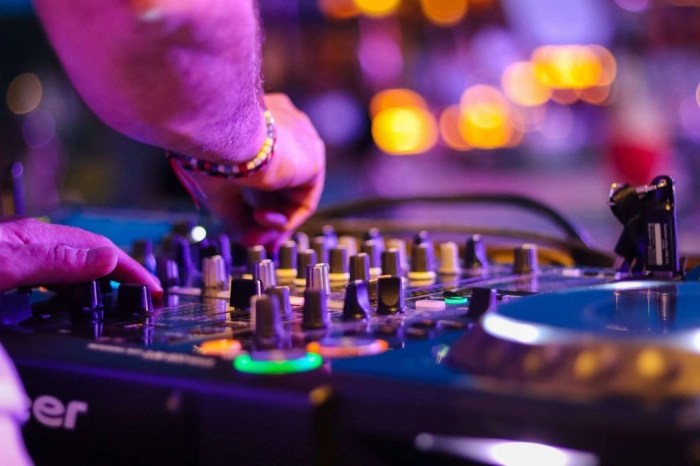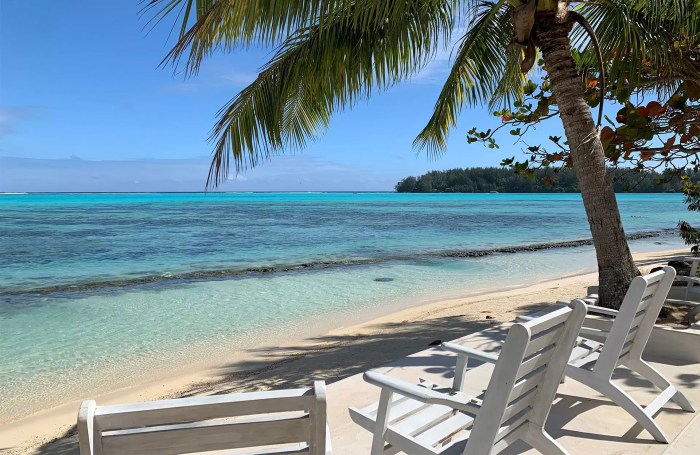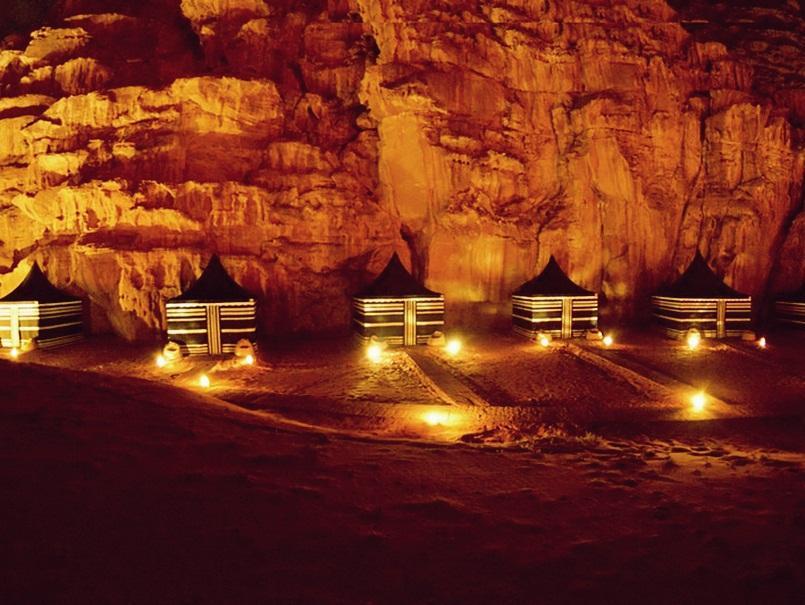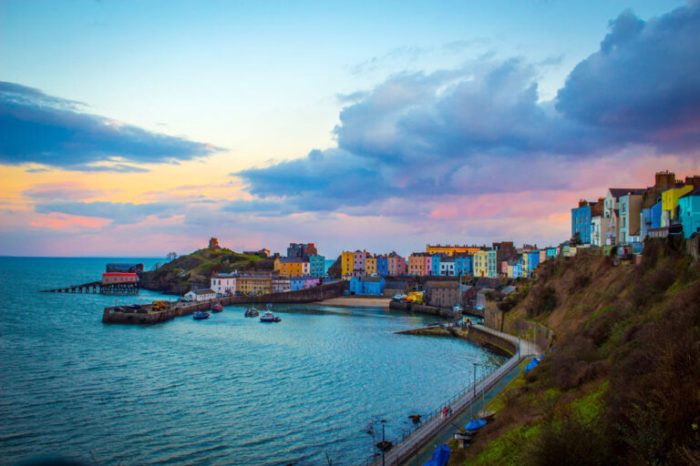Best nightclubs in europe – Prepare to embark on a captivating journey through Europe’s nightlife scene as we uncover the best nightclubs that ignite the senses and leave an unforgettable mark. From the pulsating beats of Berlin to the chic ambiance of London, this guide will transport you to the heart of Europe’s vibrant party destinations, offering an insider’s perspective on the most sought-after clubs.
As we delve into the world of European nightclubs, we’ll explore the diverse musical landscapes, architectural marvels, and exclusive VIP experiences that define these nocturnal playgrounds. Join us as we unveil the secrets of Europe’s nightlife, providing valuable insights and practical tips to help you plan your ultimate clubbing adventure.
Nightclub Rankings and Ratings
Nightclubs in Europe offer an array of experiences, catering to diverse tastes and preferences. To help you navigate the vibrant nightlife scene, we have compiled a ranked list of the top nightclubs based on popularity, reviews, and industry recognition. These rankings are derived from reputable sources, including customer feedback, expert opinions, and industry awards.
The average ratings and reviews provided below are a reflection of the overall satisfaction and experiences of patrons who have visited these nightclubs. These ratings serve as a valuable reference point when making your choice for an unforgettable night out.
Top Nightclubs in Europe
- Hï Ibiza(Ibiza, Spain): Known for its world-renowned DJs, immersive light shows, and cutting-edge sound systems, Hï Ibiza consistently ranks among the top nightclubs globally. With an average rating of 4.8/5 on Tripadvisor, it offers an unparalleled clubbing experience.
- Ministry of Sound(London, UK): A legendary club in the heart of London, Ministry of Sound has been a mainstay in the electronic music scene for over three decades. Boasting an impressive average rating of 4.7/5 on Google Reviews, it is renowned for its Funktion-One sound system and captivating atmosphere.
- Berghain(Berlin, Germany): Berghain is a techno powerhouse that has gained cult status among electronic music enthusiasts. Known for its strict door policy and immersive sound experience, it has an average rating of 4.6/5 on Resident Advisor, a respected platform for electronic music reviews.
- Amnesia(Ibiza, Spain): Another iconic club on the island of Ibiza, Amnesia is known for its large capacity, open-air dance floor, and high-profile DJ residencies. With an average rating of 4.5/5 on Facebook, it attracts a diverse crowd seeking an energetic and unforgettable night out.
- Fabric(London, UK): Fabric is a renowned club in London that has played a pivotal role in shaping the city’s electronic music culture. Known for its intimate dance floors and cutting-edge sound system, it has an average rating of 4.4/5 on Mixmag, a leading electronic music publication.
Geographical Distribution: Best Nightclubs In Europe
Europe is a continent with a vibrant and diverse nightlife scene, with major cities renowned for their unique offerings and experiences. Each city boasts its own distinct character, attracting partygoers from around the world.
The geographical distribution of nightclubs in Europe reflects the cultural and economic diversity of the continent. Major cities such as London, Berlin, Barcelona, and Amsterdam are hubs of nightlife, offering a wide range of clubs catering to different tastes and preferences.
London
- London is a global nightlife destination, renowned for its eclectic mix of clubs, bars, and live music venues.
- The city’s nightclubs range from intimate underground venues to sprawling superclubs, each with its own unique atmosphere and clientele.
- Some of the most famous nightclubs in London include Fabric, Ministry of Sound, and XOYO, which regularly host world-renowned DJs and live performances.
Berlin
- Berlin is known for its thriving underground club scene, with a focus on electronic music and techno.
- The city’s nightclubs are often located in former industrial spaces or abandoned buildings, giving them a raw and edgy atmosphere.
- Some of the most iconic nightclubs in Berlin include Berghain, Tresor, and Watergate, which are known for their cutting-edge music and marathon dance parties.
Barcelona
- Barcelona is a city that combines vibrant nightlife with a Mediterranean flair.
- The city’s nightclubs are known for their lively atmosphere and often feature live music and performances.
- Some of the most popular nightclubs in Barcelona include Razzmatazz, Sala Apolo, and Pacha Barcelona, which cater to a diverse crowd of locals and tourists.
Amsterdam
- Amsterdam is a city with a long history of nightlife and is known for its liberal attitude towards drug use.
- The city’s nightclubs offer a wide range of experiences, from intimate dance clubs to large-scale music festivals.
- Some of the most famous nightclubs in Amsterdam include Paradiso, De School, and Club NYX, which attract both locals and international visitors.
Music Genres and Ambiance
European nightclubs are renowned for their diverse range of music genres, each creating a unique atmosphere and experience. From the pulsating beats of techno to the soulful rhythms of house, there’s a genre to suit every taste.
Electronic Dance Music (EDM)
EDM is a broad category that encompasses a wide range of electronic music styles, including techno, house, trance, and drum and bass. EDM nightclubs are known for their high-energy atmosphere, with flashing lights, pumping basslines, and a crowd that’s always ready to dance.
Hip-Hop and R&B
Hip-hop and R&B clubs offer a more laid-back vibe, with a focus on soulful melodies and catchy beats. These clubs often feature live performances by local and international artists, and the crowd is typically a mix of music lovers and hip-hop enthusiasts.
The best nightclubs in Europe offer an unforgettable experience, with top-notch DJs, stunning light shows, and a vibrant atmosphere. While dancing the night away, satisfy your sweet cravings with some of the best sweets Europe has to offer. From decadent chocolate truffles to mouthwatering pastries, these treats will provide a perfect complement to your night out.
And as the evening comes to an end, return to the pulsating rhythms and electrifying energy of Europe’s premier nightclubs for a truly memorable experience.
Live Music Venues
Live music venues offer a different experience altogether, with a focus on showcasing live performances by local and touring bands. These venues can range from intimate jazz clubs to large-scale concert halls, and the music genres vary widely depending on the venue.
Other Genres
In addition to these popular genres, European nightclubs also cater to a wide range of other music styles, including rock, pop, indie, and world music. Some clubs specialize in a particular genre, while others offer a mix of different styles throughout the week.
Club Design and Architecture
European nightclubs are renowned for their architectural marvels and innovative designs. These designs go beyond mere aesthetics, enhancing the overall clubbing experience by creating immersive and stimulating environments that cater to the specific needs of clubbers.
Nightclub architects and designers work closely with lighting and sound engineers to create a multi-sensory experience that appeals to all senses. The use of cutting-edge technologies, such as LED screens, lasers, and projection mapping, transforms the club space into a dynamic and ever-changing canvas, adding an extra layer of excitement and spectacle to the clubbing experience.
Innovative Lighting Systems
Lighting plays a crucial role in shaping the atmosphere of a nightclub. European nightclubs employ state-of-the-art lighting systems that can be programmed to create a wide range of effects, from subtle mood lighting to dazzling strobe effects that synchronize with the music.
These systems allow for precise control over the intensity, color, and movement of light, enabling the creation of immersive and visually captivating environments that enhance the dance experience.
Acoustics and Sound Systems
Acoustics are equally important in creating an optimal clubbing experience. European nightclubs invest heavily in high-quality sound systems and acoustic treatments to ensure that the music is delivered with crystal-clear clarity and powerful bass response. Sound engineers work meticulously to calibrate the sound system to the specific characteristics of the club space, ensuring that every corner of the venue is filled with rich, immersive audio.
Unique Architectural Features
European nightclubs often feature unique architectural features that set them apart from the ordinary. These features can range from soaring ceilings and intricate balconies to hidden alcoves and VIP areas. Some clubs are housed in historic buildings or repurposed industrial spaces, adding an extra layer of character and charm to the clubbing experience.
Sustainability and Eco-friendliness
In recent years, there has been a growing emphasis on sustainability in the nightclub industry. Many European nightclubs are adopting eco-friendly practices, such as using LED lighting, installing energy-efficient HVAC systems, and recycling waste. Some clubs even incorporate natural elements into their design, such as plants and water features, to create a more environmentally conscious and inviting atmosphere.
VIP Services and Amenities
High-end nightclubs in Europe offer exclusive VIP services and amenities to cater to discerning clientele. These services enhance the overall clubbing experience and provide guests with a sense of exclusivity and privilege.VIP status grants access to a range of benefits and perks, including:
Reserved Tables and Seating
VIP guests are typically provided with reserved tables or seating areas within the club, ensuring a comfortable and exclusive space for their group. These tables often come with dedicated bottle service and a dedicated waiter or waitress.
Private Lounges and Cabanas, Best nightclubs in europe
Some nightclubs offer private lounges or cabanas for VIP guests, providing a secluded and luxurious space to relax, socialize, and enjoy the club’s atmosphere. These areas may be equipped with amenities such as comfortable seating, private bars, and even Jacuzzis.
Exclusive Bottle Service
VIP guests have access to exclusive bottle service, allowing them to order premium spirits, champagne, and other beverages directly to their table. The bottle service often includes personalized mixers, fruit platters, and other complimentary items.
Meet-and-Greets with DJs and Artists
VIP guests may have the opportunity to meet and interact with the DJs, artists, and other celebrities who perform at the club. This can be a unique and memorable experience for fans and club-goers alike.
Priority Entry and Queuing
VIP guests typically receive priority entry to the club and avoid long queues. They may also have access to dedicated VIP entrances or express lanes, ensuring a smooth and hassle-free entry process.
Dress Code and Entry Policies

Dress codes and entry requirements are essential factors that contribute to the ambiance and exclusivity of nightclubs in Europe. These policies ensure that patrons adhere to a certain level of sophistication and style, creating a refined and upscale atmosphere.
Entry Requirements
Entry requirements vary depending on the club’s reputation, location, and target clientele. Some clubs have strict age restrictions, while others may require proof of identity or membership. Additionally, certain clubs may implement guest lists or table reservations to manage capacity and maintain an exclusive atmosphere.
Dress Codes
Dress codes in European nightclubs typically range from smart casual to formal. Many clubs enforce a “no sportswear” policy, prohibiting patrons from wearing athletic attire, such as sneakers or sweatpants. Dress shirts, slacks, and dresses are generally acceptable, while some clubs may have more specific requirements, such as suits or evening gowns.By
adhering to these dress codes, patrons contribute to the overall sophistication and exclusivity of the club. It creates a sense of occasion and ensures that everyone present is dressed appropriately for the upscale ambiance.
Safety and Security Measures
European nightclubs prioritize the safety and well-being of their patrons by implementing comprehensive security measures.
These measures aim to prevent and respond to potential incidents, ensuring a safe and enjoyable environment for all guests.
Security Personnel
- Nightclubs employ trained security personnel who undergo rigorous background checks and receive ongoing training in crowd management, emergency response, and conflict resolution.
- Security guards are present at entrances, throughout the venue, and in designated areas to monitor activity and intervene as needed.
Surveillance Systems
- Many nightclubs utilize advanced surveillance systems, including CCTV cameras, to monitor patrons and identify suspicious behavior.
- These systems assist security personnel in detecting and preventing potential incidents, such as fights, theft, or drug use.
Bag Checks and Metal Detectors
- To prevent weapons or dangerous items from entering the venue, nightclubs often conduct bag checks and use metal detectors.
- Patrons are required to cooperate with these security measures to ensure the safety of all guests.
Emergency Protocols
- Nightclubs develop and implement emergency protocols in case of incidents such as fires, medical emergencies, or active threats.
- These protocols include evacuation procedures, first aid response, and coordination with local authorities.
Staff Training
- Nightclub staff, including bartenders, servers, and management, are trained to identify and respond to potential security concerns.
- They are equipped with communication devices and are instructed to report any suspicious activity to security personnel.
Patron Cooperation
- Patrons are encouraged to cooperate with security measures and report any suspicious behavior or concerns to staff.
- By working together, nightclubs and patrons can create a safe and enjoyable environment for everyone.
Events and Special Occasions
European nightclubs are renowned for hosting exclusive events, themed parties, and celebrity appearances that contribute to their reputation and popularity. These events create a buzz around the club, attracting a diverse crowd and generating significant revenue.
Themed parties are a common feature in European nightclubs, with clubs often transforming their space to match the theme. These parties may feature live music, elaborate decorations, and themed cocktails. Some popular themes include neon parties, 80s retro nights, and masquerade balls.
Celebrity Appearances
Celebrity appearances are a major draw for European nightclubs. Clubs often book famous DJs, musicians, and other celebrities to perform or host events. These appearances create a sense of exclusivity and excitement, attracting a large crowd and generating significant media attention.
Special events, such as New Year’s Eve parties or summer festivals, are also popular in European nightclubs. These events often feature extended hours, special performances, and unique experiences that make them highly sought after by party-goers.
Emerging Trends and Innovations
The European nightclub scene is constantly evolving, with new trends and innovations emerging all the time. These trends are shaping the future of nightlife experiences, creating more immersive and interactive environments for clubbers.
Immersive Technologies
Immersive technologies, such as virtual reality (VR) and augmented reality (AR), are becoming increasingly popular in nightclubs. VR headsets can transport clubbers to other worlds, while AR overlays can create interactive experiences that enhance the music and atmosphere.
Personalized Experiences
Nightclubs are also using technology to personalize experiences for clubbers. Apps allow guests to create custom playlists, order drinks, and even control the lighting and sound. This level of customization makes for a more tailored and enjoyable experience.
Sustainability
Sustainability is becoming an increasingly important trend in the nightclub industry. Clubs are using renewable energy sources, reducing waste, and promoting responsible drinking. This focus on sustainability helps create a more environmentally friendly and responsible nightlife experience.
Health and Wellness
Nightclubs are also focusing on health and wellness. Some clubs offer healthy food and drink options, while others host yoga and meditation classes. This focus on well-being helps clubbers stay healthy and energized throughout the night.
Last Recap
As the night draws to a close, we bid farewell to the captivating world of Europe’s best nightclubs. From the energetic dance floors to the unforgettable memories created, these clubs have left an indelible mark on the nightlife landscape. Whether you seek an electrifying party atmosphere, a sophisticated ambiance, or an exclusive VIP experience, Europe’s nightclubs offer an unparalleled array of options to suit every taste and preference.
As the sun rises, we encourage you to embrace the vibrant nightlife culture of Europe, explore its hidden gems, and create your own unforgettable stories.
Essential Questionnaire
What are the most popular nightclubs in Europe?
According to our rankings, the top nightclubs in Europe include Berghain in Berlin, Fabric in London, Amnesia in Ibiza, and Pacha in Barcelona.
What are the different music genres featured in European nightclubs?
European nightclubs offer a wide range of music genres, from techno and house to hip-hop and R&B. Each club typically specializes in a particular genre or sound.
What are the dress codes for European nightclubs?
Dress codes vary depending on the club. Some clubs have a strict dress code, while others are more relaxed. It’s always best to check the club’s website or social media pages for specific dress code requirements.


